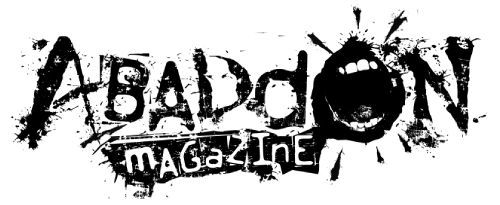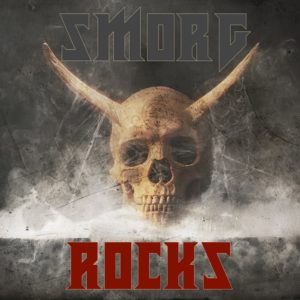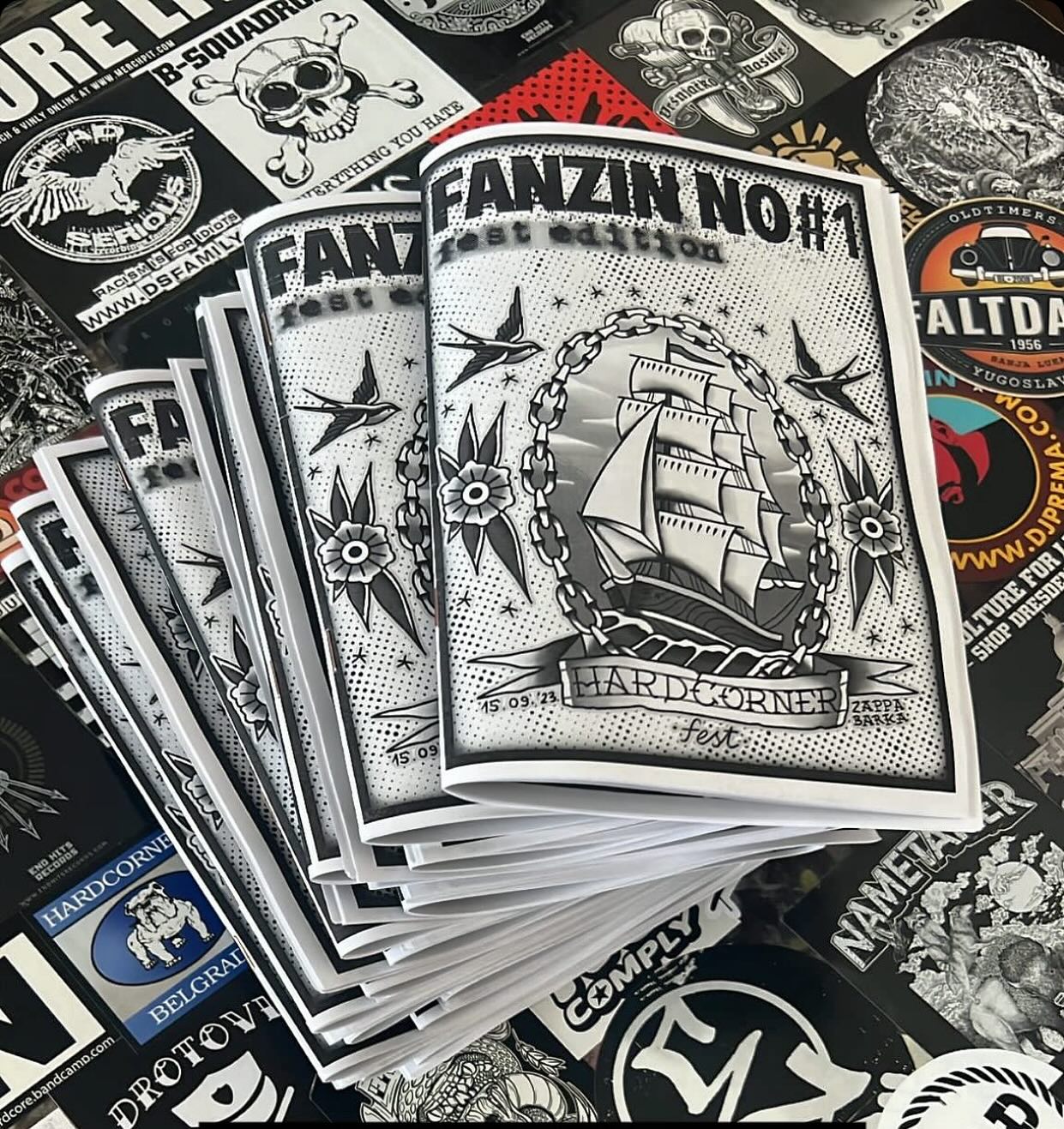This interview is a collaboration between Neckbreaker Magazine and Abaddon Magazine. The interview was originally conducted in German, and you can read it in Neckbreaker, while the English version is available at Abaddon Magazine. I hope you will enjoy reading it as much as we did working on it.
Matthias and Ivona: Hello Chris, how are you?
Chris: I’m fine. Everything’s fine so far. Thank you very much.
Matthias: How satisfied are you with the tour so far?
Chris: Very satisfied. Because we sometimes have 30% more people at the shows, we now have 6 sold out shows out of 15 shows here, unfortunately not today, but I think that’s always difficult on a Wednesday, and Hanover isn’t quite the rock city it used to be, is it?
Matthias: Not anymore. It used to be. But now it’s gone down a lot. You can tell.
You entered the charts in several countries with “Bone Collector”. Did you expect that?
Chris: I was surprised that we entered the charts in Sweden. We were in Greece with the last one too. Austria too. No, we weren’t in Austria last year. But of course that’s a compliment for the band and also for the record. For the quality of the record, if people buy the records and it gets into the charts.
Matthias: Let’s talk about the lyrics for a moment. My impression is that “Bone Collector” is not a concept album, but there is a kind of common thread. This bone and skull story runs through it a bit.
Chris: Yes, of course there are horror stories like “Kingdom Of Skulls” or “Bone Collector”. This time the “Bone Collector” is more of a synonym for the Reaper, because I didn’t want to do “The Reaper” again, “Return Of The Reaper”, anything with “Reaper”. That’s why we thought about calling the album “Bone Collector”. There are also a few lyrics like “The Rich, The Poor, The Dying” where a bit of social criticism is included. There is a small percentage of people in the world who have a lot of money, behind them there is a middle class and also a large percentage who have very, very little money. Or documentary texts like “Killing Is My Pleasure”. It’s about Richard Kuklinski, the mafia murderer, contract killer, who killed around 200 people. He had a family, left the house in the morning, killed a few people, came home at 5 or 6 in the evening and had dinner with his family.
Matthias: That’s pretty crazy.
Chris: Or the last song, “Whispers Of The Damned”. Among other things, it’s about the Auschwitz concentration camp commander, who, like Richard Kuklinski, lived next to the concentration camp and killed millions of people during the day as a kind of day job and led a completely normal family life with his family on the other side, behind the wall.
Matthias: That’s a story like that too. It makes you feel completely different.
You also produce for other bands, what is important to you? What do you pay attention to?
Chris: That the bands always come across as authentic. That I don’t influence or change the band’s style, but rather capture what makes the band what it is. Whether that’s Grave Digger or WarWolf or Rigorious. That’s very important to me.
Matthias: There were some heated discussions about the cover. Because it’s AI generated. I don’t think you can hear the question anymore.
Chris: (Laughs) Well, I was one of the artists who said, yes, that’s AI. Others used it and didn’t say anything. Like Kerry King or Deicide, for example.
Matthias: There were a few. You’re absolutely right.
Chris: All I can say is that the discussion is of course hypocritical to some extent, because we live in a digital world and it’s clear that artificial intelligence, especially in this area, steals everything that has ever been uploaded, but even the artists, let’s say, who design covers, use AI for their characters, for backgrounds, and recreate them. When I started, for example, for “Heavy Metal Breakdown”, the price for the cover was 40 DM.
Matthias: We’re probably at €4,000 now.
Chris: Yes. Let me put it this way: when Photoshop came along, everyone shouted that there were no more artists. I’ll just say that in a one year, no one will care about AI anymore. Then something new will come along.
Matthias: I see it as saving you money and if that benefits production, what’s the problem?
Chris: It looks good, I’d say. It’s not a crappy cover.
Matthias: I find the new album to be much harder than the previous ones. Did you intend it that way or was it a natural process?
Chris: It’s a natural process, I’d say. With the album, with the sound, I wanted to go back a little to what actually defines the band. At some point we developed a signature sound. The typical Grave Digger sound. We’ve strayed from that path a little with the concept albums and I actually wanted to go back to that. And I think we’ve done well. Tobi has brought a lot of fresh air and we are already working on new songs for the next album and they sound fresh and I think that we can definitely keep that freshness for a while.
Matthias: Were you surprised when Axel said he didn’t want to continue anymore?
Chris: No. That was different. I told Axel I didn’t want to anymore. I didn’t want to continue with Axel. That’s relatively simple. The collaboration after “Symbol Of Eternity” stagnated a bit, although it worked reasonably well on the album. But in my opinion, also live he didn’t play this good anymore and he also created his own solos for the old songs and didn’t care about what the former guitar players were playing. But all in all, he simply did not fit anymore.
Matthias: After 45 years in the music industry, where do you see the future of metal and are you worried about the next generation?
Chris: When I think about the concerts at the moment, especially on the weekends, we have a lot of young people who make me think: “Uh, I could be your grandfather”. That just tells me that there is a growing number of young people who like handmade music. They don’t want CD productions performed live like Powerwolf or Sabaton, where a lot of things live are samples, like choirs and keyboards and so on. We’re going the opposite direction and focusing on really playing live.
Matthias: In all these years, with so many albums and so many lyrics, have you ever forgotten a lyric or are there songs that you say I can’t remember at all?
Chris: Of course, I have to learn the lyrics again for old songs that we’re putting back on the setlist. It’s not like I have 300 Grave Digger lyrics stored in my head. As I get older, my ability to remember things isn’t quite as good. I always forget a few words at concerts. But that’s just how it is. I am only human.
Matthias: Does someone like you still get stage fright after such a long time?
Chris: No stage fright. On the other hand, I’m really up for it. I’m really up for playing live.
Matthias: How typical day on tour looks like?
Chris: After we’ve been shaken up all night in the bus on the motorway, we get up between 9 and 11 a.m. Then the hall opens around 12 a.m. Then we have breakfast and at 2 p.m. the backline is unloaded and set up. Then there’s usually a sound check at 4 p.m. After the sound check between 4:30 and 6 p.m. I usually use the time for interviews. We eat at 6 p.m. Then we rest a little and we’re usually on stage between 9:30 and 10 p.m.
Matthias: Can you still enjoy the time in the tour bus after such a long time or does it become more routine and a little boring?
Chris: I enjoy the concerts. But the whole thing around it… I do everything myself. I do tour management, I have to do the accounting here on tour, I’m not bored compared to a few others who don’t have to worry about that kind of thing, but I have other tasks. It’s my company at the end of the day. Grave Digger is a company, not just a band, and I do everything myself, right?
Matthias: Then I’d leave that to Ivona.
Ivona: I want to talk about the other kind of art. Photography, painting, root art. That’s very interesting for me. Where do you find ideas and inspiration?
Chris: Actually, in everyday life. I don’t paint anymore at the moment because I just don’t have the time for it, but when I was painting, or doing root art or photography, there is no difference to making music. There is some kind of stimulus and you develop an image or a fantasy about it. And you either put it on canvas, or you take a photo, or I spent a lot of time on the beaches in Greece, looking for root wood, and when you see something beautiful, you pick it up and think “What could I do with that?” It’s like a guitar riff in the end. You get a guitar riff sent to you by a guitarist and think “Oh, ok. I can make a song out of that.” As an artist, it’s always difficult to say what inspiration is. Lots of people say “I’m inspired by this or that”. But it’s difficult to define it exactly.
Ivona: Is it just a hobby or more?
Chris: I earned a bit of money from it from 2010 to 2015, 2018. But ultimately it’s a hobby. So I can say painting is even more difficult than making music.
Ivona: Where can not only Grave Digger fans, but also other people who like art, see or buy your art?
Chris: I had a website for a while where I offered it. But it doesn’t work anymore. I don’t have time for it anymore. My art is at home, and when I move I carry it from A to B or from B to C. But I don’t sell anything anymore. I also exhibited in Wacken once. I also exhibited in Wacken in 2013. And I had a few exhibitions in Cologne.
Ivona: I’ve seen some of your sculptures. I particularly like Poseidon.
Chris: I’ve given some of the sculptures back to nature. They are in my garden and are rotting. Nature is taking them back. I find that very interesting.
Ivona: How important is the support of family and friends to you in these 45 years?
Chris: My wife, I have been with her for 36 years, she is a very important part of my life. I have had a son for 18 years and family is very, very important to me. And then free space, and then comes the music. But family is very important.
Ivona: And does the son listen to heavy metal or not?
Chris: The son listens to heavy metal, the son makes music himself, plays guitar, the son also sings very well, and will be on stage with me for the first time on Saturday at the sold-out show in Essen and perform “Rebellion”.
Ivona: What is more difficult to write and compose, a concept album or a normal album?
Chris: Let me put it this way: in the end, the concept album is always more difficult because you have a certain framework within which you have to move and where you have to place your lyrics. And of course when I do something like “Bone Collector” then I have total freedom. But the concept album is more difficult. Musically it is perhaps easier to follow because you have to convey a certain atmosphere, especially with the Scotland albums that we made, but I’m definitely not enjoying making a concept album at the moment.
Ivona: Have you ever had a creative crisis or said “I can’t do this anymore. I’m done”?
Chris: No, I never said I’m finished like the national coach. The reason I still have so much energy is probably because I still love this music, I’m still a fan myself. Maybe not as much as in the eighties or nineties, but that’s where I find the energy to carry on. And of course when people are happy. I see that from people on this tour in particular. They laugh and have fun. That’s the most important thing.
Ivona: Can you tell me the difference between fans in Europe and, for example, America?
Chris: The South American fans are a bit more enthusiastic. But that’s also the case in Europe. When you play in Italy, Greece, Spain, you have a lot of passionate fans who sing and have fun. The further you go to the north, the people are more reserved.
Ivona: The Serbian fans are also very passionate.
Chris: Yes, that’s true. There is a certain difference, I would say, in terms of the mood. But in southern Europe or South America, the warmer the countries or continents are, the more passionate the mood is. Although we have always had good experiences in Russia and elsewhere.
Ivona: And in Japan? Did you play there too?
Chris: Yes. We were in Japan twice. Japanese people are always very passionate during the song, and during the breaks you hardly hear anything because they always want to hear what you are saying. I also like playing in Japan.
Ivona: Metal is very popular in Japan.
Chris: Yes. Not like in the nineties or so, but still popular enough, right?
Ivona: In all these years, and you’ve given hundreds and thousands of interviews, is there a question you’ve never been asked?
Chris: I don’t think so. I’ve answered so many questions. I’d have to think about it for a long time. I don’t think anyone has ever asked me what shoe size I am.
Matthias: If you were to interview yourself, what would you ask yourself?
Chris: There’s nothing I’ve never answered, I’d say. Yes, maybe the question would be why I haven’t written a second book about the story of Grave Digger. Then I say: “For the first 20 years I drank alcohol and took drugs and experienced a lot because of it. Lots of funny stories, lots of negative stories too. I haven’t taken drugs for 25 years and I don’t drink alcohol anymore either. Since then, my life has just been boring.” (Laughs)
Ivona: Do you have time to read?
Chris: I play golf.
Ivona: Like Alice Cooper.
Chris: Yes, exactly. I played with Alice Cooper 15 years ago.
Ivona: That’s very interesting. We saw Alice Cooper in Leipzig. I don’t know anything about golf. I think it’s boring.
Chris: No, not at all. It’s a really great, really exciting sport. And it’s always different than you think when you go to the golf course. It takes you to your own limits. People always say it’s an old man’s sport. That’s not true at all. It’s a really crazy sport, with really high emotions and also really low ones. The whole spectrum. In the summer I play golf almost every day.
Matthias: Since we’re on the subject of golf, do you know the book “Coma” by John Niven?
Chris: No, not yet.
Matthias: It’s highly recommended and very funny.
Chris: I’ll get it. Apart from that, I hope you enjoy the concert.
Ivona and Matthias: Thank you very much. We wish you the same and see you soon.
Authors: Ivona Bogner (Abaddon Magazine) & Matthias Hangs (Neckbreaker Magazine)
Photo credit: Jens Howorka






